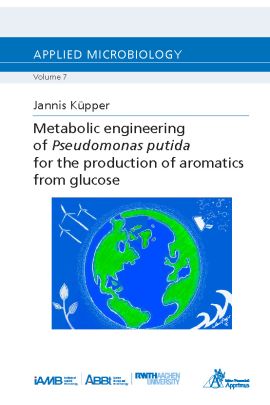Dieses E-Book können Sie hier herunterladen.
Within the last century a highly optimized petro based chemical industry emerged which produces a vast array of chemical products with applications in every area of our life. The extensive exploitation of the non-renewable, fossil resources raised concerns due to the finitude of these resources, the rising production costs, greenhouse gas emissions and constantly increasing waste streams add to climate change, which poses a severe threat to the environment and ultimately humanity. In addition to these concerns, political drivers such as national energy independency and CO2 taxation created a need for a more sustainable greener society and chemical industry with a lower carbon footprint. Fueled by renewable feedstocks and powered from wind, sun, water and biomass the bioeconomy produces biobased chemicals with potentially closed carbon balances and thus has the potential to create a truly sustainable chemical industry. Recent advances in the biological sciences provide the tools for targeted engineering, which accelerates the application of bioprocesses in the chemical industry. This dissertation focused on the investigation of pseudomonads, a promising microbial host for the bioeconomy with industrial relevant features such as solvent tolerance and a versatile metabolism. The complete genome of Pseudomonas putida S12 was published within the frame of this dissertation offering valuable genetic insights into this solvent tolerant strain to boost its application for the production of industrially relevant chemicals. Specific attention was paid to insertion sequences highlighting the importance of genome mobility for the engineering of stable production strains for the bioeconomy. In addition, the production of building blocks, namely styrene and anthranilate (oAB), which serve as precursors for a variety of bulk and high value products, was realized in pseudomonads. Targeted metabolic pathway engineering strategies were investigated to increase precursor availability, to prohibit product degradation and to ultimately increase production titers. A maximal titer of 11.23 mM oAB and a maximal titer of 4.6 mM of styrene, and thus a second phase concentration of styrene, were achieved in pseudomonads highlighting their application as a platform host for a biobased chemical industry.
| Autor | Küpper, Jannis |
|---|---|
| Lieferzeit | 3-4 Tage |
| Gewicht | 0.204 kg |
| Erscheinungsdatum | 24.07.2018 |
Applied Microbiology
Metabolic engineering of Pseudomonas putida for the production of aromatics from glucose (E-Book)
Kurzbeschreibung
Dieses E-Book können Sie hier herunterladen.
Fueled by renewable feedstocks and powered from wind, sun, water and biomass the bioeconomy produces biobased chemicals and thus has the potential to create a sustainable chemical industry. In this dissertation, we investigated pseudomonads, a promising microbial platform organism for the bioeconomy. The complete genome of P. putida S12 was published and building blocks, namely styrene and anthranilate, which serve as precursors for bulk and high value products, were produced with pseudomonads.

